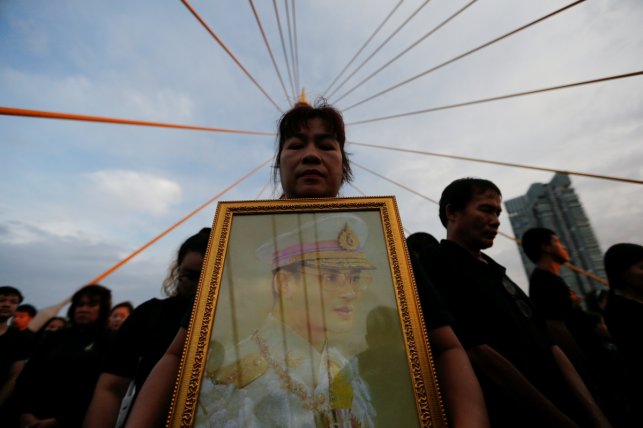
Thailand is investigating the BBC under the country's draconian lese majeste laws after it published an article in its Thai language service which allegedly defamed the new monarch, Maha Vajiralongkorn Bodindradebayavarangkun.
The article was published on Friday, a day after the crown prince ascended the throne vacated by late King Bhumibol Adulyadej. The news story reportedly narrated the new king 's early years, including his educating in various countries. It also gave rare insights into his personal life, including information such he flies his own Boeing 737 when travelling abroad.
The BBC article was widely shared on social media, where a lot of people found it insulting the monarch. The ruling Thai junta blocked the news article on the Internet and arrested a prominent anti-government activist for sharing it online.
Thailand's fierce lese majeste laws protect the immediate royal family from public criticism. Anyone found to have insulted the king or the monarchy is liable to be imprisoned for up to 15 years under the lese majeste law.
"Authorities have to pursue the matter. It is their duty to pursue anything that is against the law," Thailand Defence Minister Prawit Wongsuwan told reporters. BBC has not issued a statement since the start of the investigation.
Under the law, which has been a subject of criticism from rights groups across the world, anyone who "defames, insults or threatens" a member of the Thai royal family will be punished, and it's mandatory for the government to start criminal proceedings against anyone who has been accused of royal insult.
According to Thai police, more than a dozen people were investigated over new complaints of royal defamation found on social media posts since the king's death."Their crime was posting messages or pictures which insulted the monarchy on social media," police spokesman Kitsana Pattanacharoen told Reuters.
The Guardian reported that police visited the BBC Thailand office, which had been closed. The police investigation was followed by a military team's visit. The report said the police team, comprising ten officers, took away yakult milk drink from the BBC office which was vacant.
The British newspaper said the BBC profile of the new king also had touched upon the concerns over the new king's fitness to be a monarch when he was named the heir apparent in 1972. It also said he did not command the same respect as King Bhumbol.
Rise in defamation cases under junta rule
During the last two-and-a-half years after the latest coup, there were 70 cases of royal defamation in the country.
Thailand's harsh lese majeste law stipulates up to 15 years in prison for anyone convicted of defaming, insulting or threatening the king, queen, heir or regent.
The modern concept of lese majeste was adopted into Thailand's first criminal code in 1908. The law states that "whoever defames, insults or threatens the king, queen, heir-apparent, or regent shall be punished with imprisonment of three to 15 years."
Since the country descended into chaos following the ouster of democratically elected prime minister Tahksin Shinawatra in 2006, the number of royal defamation cases has risen sharply. The severity of punishments meted out to those convicted has also gone up.
The roots of the lese majeste law are traced back to the 19th Century when those convicted under this law were punished by beheading. There was also the practice of chopping off the ears, hands and feet of the convicts.
The ruling military junta spent hundreds of millions of dollars in recent years to burnish the image of the crown prince. The junta campaign was titled "Worship, protect and uphold the monarchy.








